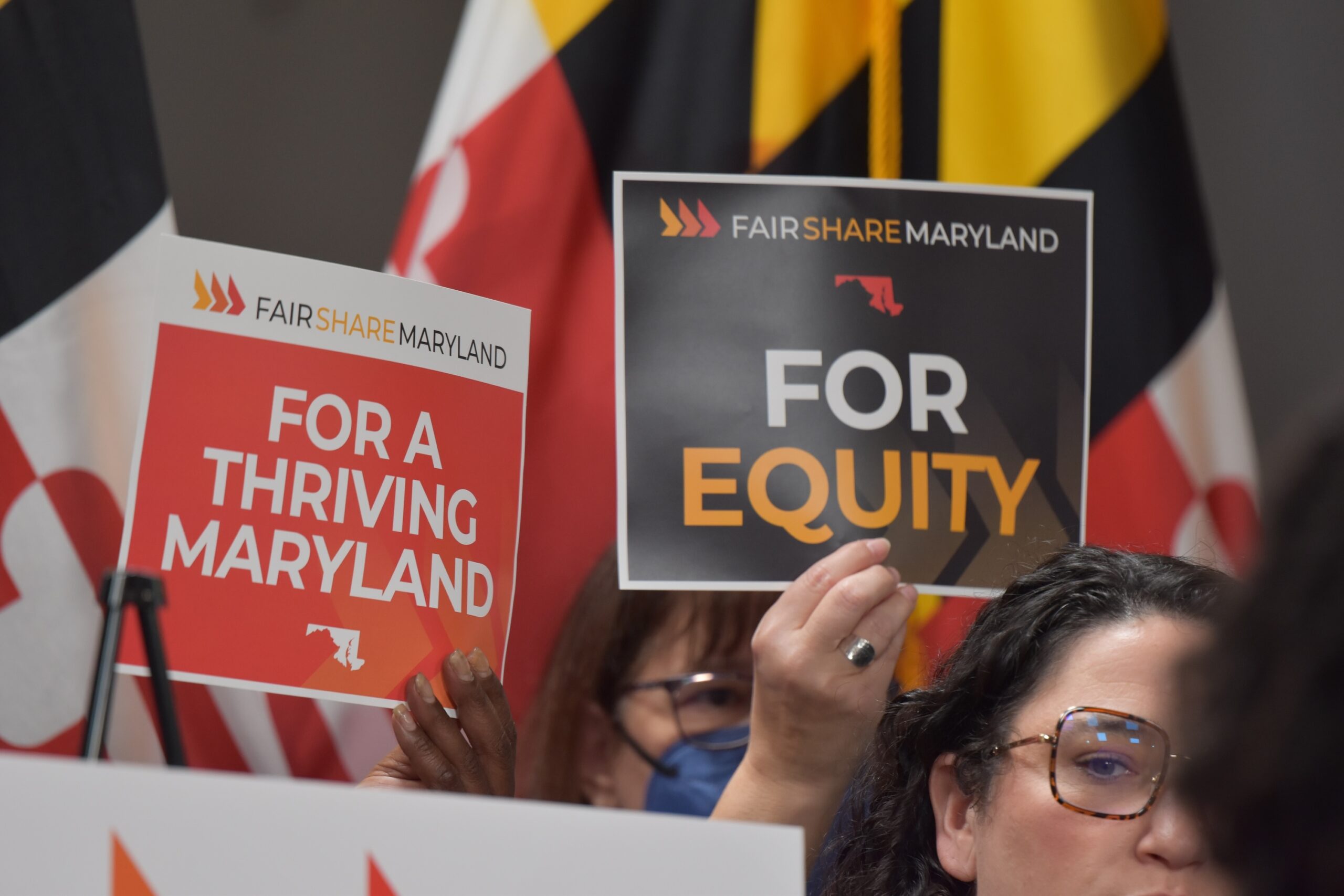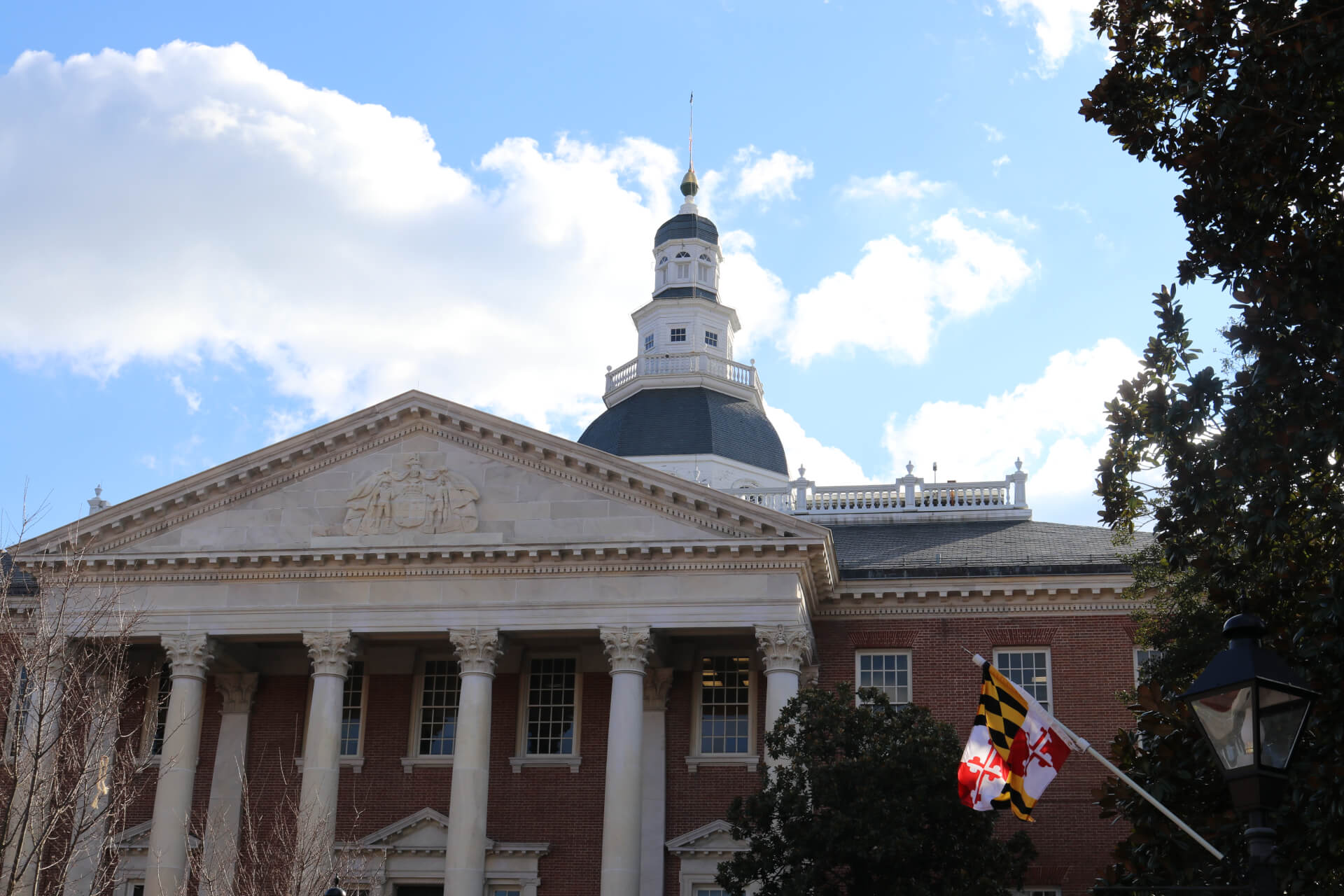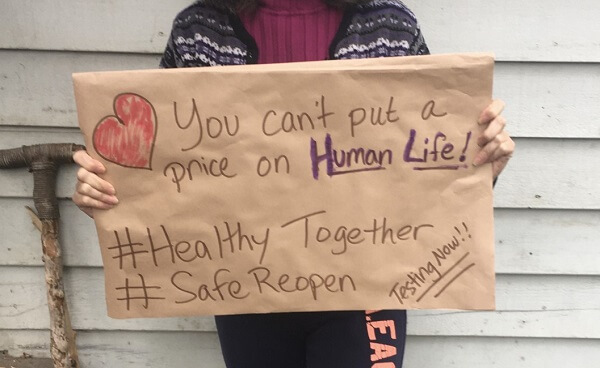Commentary: How to address economic disparity and build a sustainable future for Md.

By Heather Iliff
The writer is the president and CEO of Maryland Nonprofits.
Maryland has the highest median household income and a vibrant economy, yet poverty is painful and deadly for many in this wealthy state. Thirty-eight percent of Maryland households are not able to meet basic human needs of food, housing, transportation and healthcare and 12% of Maryland’s children live in deep poverty. We are failing to meet the needs of residents and we are not prepared to sustain a future that looks different than our past injustice.
The comptroller’s recent State of the Economy report shows that Maryland’s economic growth has stagnated, depressing state revenues. Nonprofits, for-profit businesses and governments are struggling to fill positions as 180,000 people have left the workforce compared to pre-pandemic levels. The report identifies the causes of workers dropping out of the labor force as the high cost of housing and childcare, and other barriers including opioid use disorder.
Indeed people’s health, mental health and disability are areas where state investment and partnership with community organizations show proven paths to enabling people to overcome barriers and get into the workforce and grow our economy.
Maryland’s nonprofit sector supports the Moore-Miller administration’s proposals to address these barriers. Proposals such as the Housing Expansion and Affordability Act, ENOUGH Act to address concentrated poverty, Lowering Prescription Drug Costs for All Marylanders Act, expanding the Child Care Scholarship Program, and Access to Care Act are designed to bring more people into the workforce, reduce childhood poverty, promote equitable economic growth and make it more affordable to live and work in Maryland. While the governor’s policies are on target, state revenues are insufficient to do the job.
Unfortunately, the governor’s proposed fiscal year 2025 budget does not fund key areas sufficiently to match the needs, and are insufficient to meet one of the Governor’s main goals of eliminating childhood poverty. Only $15 million is designated for the ENOUGH Act for example, when more like $150 million or more would be necessary.
Missing from the proposed budget are desperately needed funds for renters being priced out of housing, building a modern and environmentally sustainable public transit system, expanding access to health care language access and much more. Meanwhile, the state’s structural deficit is projected to grow to almost a billion dollars in 2026, $1.5 billion in 2027, $3 billion in 2028, and more in 2029.
A key driver of this looming budget crisis is Maryland’s woefully outdated and fundamentally inequitable revenue system. Middle-income and low-income Marylanders currently pay a higher share of their income on state and local taxes than wealthier Marylanders, while large for-profit corporations receive windfalls from legacy tax loopholes.
Polling by Maryland Rise found that 64% of Marylanders believe our tax system to be unfair and more than three out of four surveyed said it was important for the state to make sure wealthy individuals pay their fair share. Maryland needs a tax system that benefits those most disadvantaged and who will spend their tax relief immediately, investing those dollars into communities most in need.
We need to act now to put Maryland on a sustainable path and make the investments needed to expand our workforce and get the economy growing.
The Fair Share for Maryland Act of 2024 would reform and modernize Maryland’s revenue system. It would close corporate loopholes, crack down on tax fraud and reform state income, estate and capital gains taxes so the richest Marylanders pay slightly more.
For low to moderate-income Marylanders, the Fair Share for Maryland Act significantly expands the state’s modest Child Tax Credit so it reaches more households and takes the final step in creating one of the strongest Earned Income Tax Credits in the country by expanding eligibility for low-income workers who don’t claim dependent children on their taxes. Both the EITC and child tax credit would be automatically adjusted for inflation and have expansive eligibility criteria.
The Fair Share for Maryland Act would cut taxes for more than a million Marylanders with family incomes of less than $80,000, making a direct and significant impact on reducing childhood poverty.
Now is not the time for austerity and cuts. Now is the time for all Marylanders to pay their fair share toward our common future. Maryland needs to move forward with a modernized budget and progressive tax structure that supports growth by eliminating barriers to opportunity and fostering more equitable participation in our economy.




 Creative Commons Attribution
Creative Commons Attribution